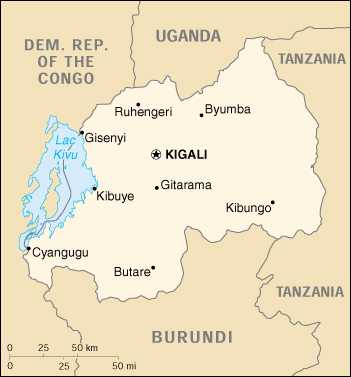“Your presence here is a vote of confidence in Rwandan coffee,” George Kayonga, head of Rwanda’s National Agricultural Export Development Board (NAEB), told Coffee Research Symposium attendees on March 17.
A vote of confidence, in this case, as over 150 representatives from academia, private sector, government, and international organizations assembled in Kigali to discuss a challenge threatening to reduce confidence in Rwanda’s high quality coffee.
The potato taste defect—thought to be caused by an insect pest called the “antestia bug”—causes otherwise exceptional East African specialty coffee to exhibit a potato-like taste, which impacts the industry’s revenue potential.
Rwanda’s Ministry of Agriculture, NAEB, University of Rwanda (UR), and others organized the Symposium to gather a global network of experts to share knowledge on the state of science on this taste defect. Beyond discussing new research, the gathering sought to identify practical solutions to the challenge.
The cost of potato taste to Rwanda’s economy remains in debate, but available numbers present a perilous picture. Matt Smith, head of exporter Rwanda Trading Company, estimates that losses solely due to potato taste—and solely in medium grade coffee—reach at least US$3.9 million annually.
Combined with specialty coffee losses, experts estimate this number to be multiple times higher.
Rwanda’s government has taken bold steps to combat antestia and mitigate potato taste. At the Symposium, researchers from the Rwanda Agriculture Board (RAB) and UR reported on efforts to map the distribution of the antestia bug and potato taste.
NAEB—which oversees farmer outreach—described its focus on improving farm-level pest control.
Buttressing these efforts is a global team supporting research on the cause of, and treatments for, potato taste. Since 2012, US non-profit the Global Knowledge Initiative (GKI) has built a potato taste research network through its LINK (Learning and Innovation Network for Knowledge and Solutions) program.
Starting with UR, GKI built a network of partners including Seattle University; Rogers Family Company; CIRAD; University of California, Riverside; and many others aimed at studying and solving this challenge.
Representatives from these institutions presented research on antestia bugs, chemical and biological profiles of the potato taste itself, and variables predicting potato taste.
Although Symposium participants underscored the importance of continuing research, because the antestia bug destroys up to 38% of coffee apart from damage caused by potato taste, the direct effects of potato taste on the coffee market demands practical solutions.
Therese Karitanyi of AgroPharm Africa, for example, spoke about pyrethrum, a locally grown, organic pesticide that kills antestia bugs. David Mills, CEO of UK firm WeatherSafe, presented new satellite technology that helps governments, firms, and farmers make decisions that could mitigate potato taste.
He also opened an invitation to those interested in implementing this technology in Rwanda: “We need people with an affinity for this country,” he said, “the technology is there, but we need people to implement it.” Susie Spindler, head of the Alliance for Coffee Excellence, underlined the need for practical solutions when she announced a Challenge Prize of up to $20,000.
This prize would fund up to three pilot projects aimed at testing techniques or technologies to detect or mitigate the potato taste defect. Strong private sector support for the Challenge Prize, she said, evidenced its commitment to Rwandan coffee.
In order to help participants synthesize what they heard throughout the Symposium, and provide opportunities for collaboration on research and solution development, GKI organized a Collaboration Colloquium on the Symposium’s second day.
This facilitated event provided participants with opportunities to analyze challenges related to potato taste, and identify areas where collaborative action could make a difference.
Sponsored by WeatherSafe and US coffee roaster Counter Culture Coffee, the Collaboration Colloquium provided practical ways for participants to partner on solving potato taste.
Participants identified nine areas of action—ranging from training farmers to testing potato taste detection tools—which will help guide partnerships going forward.
GKI is an international non-profit organization with the mission of stimulating collaborative networks to solve development challenges pertinent to science, technology, and innovation.
With operations in Africa, Asia, and the US, GKI helps researchers, entrepreneurs, and others locate resources critical for problem solving; enable effective collaboration by building skills and designing shared agendas; and connect resources and partners into durable networks; all to solve pressing development challenges.


















